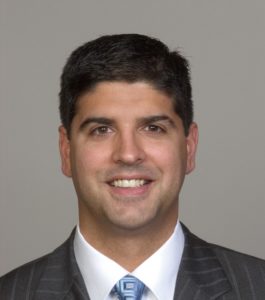
I would like to let you in on something: Survey enforcement against nursing homes across the country is on the rise.
For the last few years, we have seen our post-acute care clients suffer a marked increase in fines and penalties from the Centers for Medicare & Medicaid Services and state departments of public health for both certification and licensure surveys at facilities. The fines are higher, and the deficiencies and violations cited are more critical than they have been in the past.
I would also tell you that we are seeing fines issued against facilities that have not had fines before and fines against facilities for deficiencies or violations that were never cited before (even though nothing has changed in the quality of operation of the facility). In other words, facilities are being fined for infractions that were untouched and unenforced for decades prior.
Clearly, there is an increased edge in enforcement in the survey and certification process against nursing homes today.
But what is missing here? Does the government not see that nursing homes are struggling to keep their doors open? So many of my clients that have operated for decades are now seeking to sell their facilities or have decided, just this year, to close their doors outright because of a lack of census, or more commonly, because of a lack of staff due to the staffing shortages. It’s as if the government cannot see that the nursing home workforce crisis not only jeopardizes the welfare of residents but also costs facilities more these days in staffing to do less.
Indeed, reports have shown, just recently, that nursing homes have had to turn away residents (the very opposite of what their mission is) because of a lack of staff. According to a recent study, staffing shortages have caused long-term care facilities to cut back on new admissions.
According to a recent survey of 759 nursing home providers by the American Health Care Association/National Center for Assisted Living, “there’s a shortage of nursing home beds for the elderly in America due to a severe staffing crisis that has caused long-term care facilities to cut back on new admissions.” The results found “three out of five nursing homes (61%) have limited new admissions due to staffing shortages,” and “nearly three out of four (73%) are concerned that they’ll have to close their facilities over staffing problems.”
“We project that more than 400 nursing homes could close this year due to this workforce and economic crisis,” said AHCA/NCAL Public Affairs Senior Vice President Beth Martino.
So the staffing crisis caused by the COVID-19 pandemic, which also caused lower census, is now compounding the problem by forcing nursing homes to further lower an already low census.
Yet the government, through its survey and enforcement powers, acts as if nursing homes have not just been through a monumental COVID-19 storm, and that their operations are back to normal. But nothing could be further from the truth.
In reality, our nursing homes are financially struggling more than ever coming out of the pandemic. Furthermore, the pandemic is still affecting facilities, as COVID-19 variants are continuing to plague our nation.
The government might say that facility closures or sales after the pandemic are warranted to allow facilities to be more financially secure and to have a higher quality of care in light of their increased survey and enforcement procedures. However, what the government is not realizing is that by fining and penalizing facilities through the increased survey enforcement process, they are putting the good owners — the ones who have been operating for decades — out of business.
Losing those people in long-term care is not a benefit to the industry. It is a harm. Those dedicated folks have run facilities for decades, been part of the community, and cared most for residents who now are washed away by being embattled with increased government scrutiny.
The fact that the government will not account for staffing shortages, and ramp up enforcement with surveys, is a slap in the face to all facilities that have worked so hard to fight during the pandemic and keep their doors open for the good of the communities they serve.
If facilities in the industry so readily and palpably feel the harmful effects of the staffing shortages, the increased costs, and the lower census, there’s one vital question to ask: Why can’t the government too?
Neville M. Bilimoria is a partner in the Chicago office of the Health Law Practice Group and member of the Post-Acute Care And Senior Services Subgroup at Duane Morris LLP; [email protected].
The opinions expressed in McKnight’s Long-Term Care News guest submissions are the author’s and are not necessarily those of McKnight’s Long-Term Care News or its editors.




